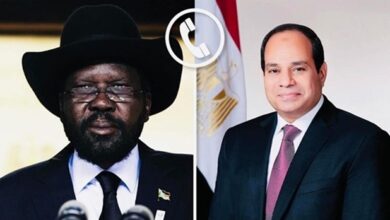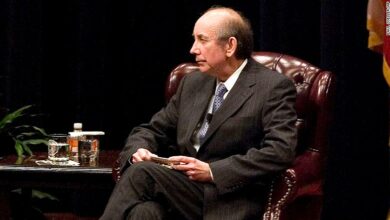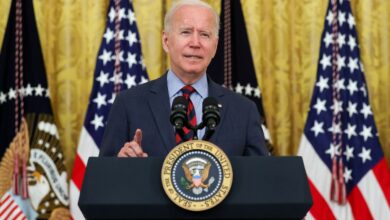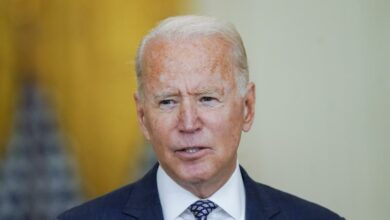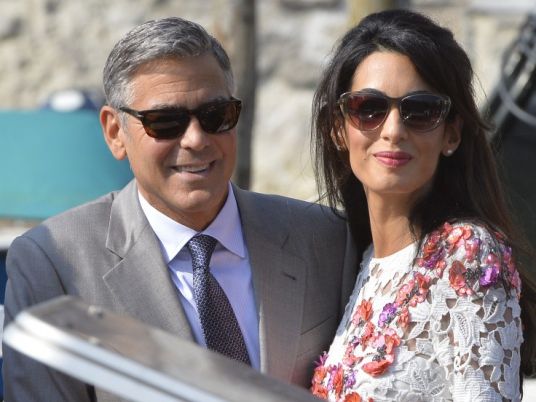
The leaders on both sides of South Sudan's civil war and their families have profited off the conflict, amassing fortunes through links with bankers, arms dealers and oil companies, according to a report released on Monday by actors George Clooney and Don Cheadle.
At a news conference to present the report, they called on the international community to cut off the leaders' financial flows through tougher sanctions.
The report follows a two-year undercover investigation by The Sentry, a group co-founded by Clooney and fellow activist John Prendergast to look into the financing of African conflicts and comes at a time when the United Nations is threatening to impose an arms embargo against South Sudan's government.
The group said a network of international facilitators stretched from arms dealers in Ukraine to construction companies in Turkey, mining firms in Kenya, and Chinese investors involved in joint ventures in gambling and private security sectors in South Sudan.
According to the report, South Sudan's leader President Salva Kiir, his former deputy Riek Machar and military generals have pilfered state coffers, accumulated an array of luxury homes and cars, and enriched themselves and family members through stakes in oil and other business ventures.
Spokesmen for Kiir and Machar both denied the leaders had properties in Kenya or other African countries, as the report alleged.
The report also said South Sudanese army chief Paul Malong, who makes roughly $45,000 a year, has at least two luxurious villas in Uganda in addition to a $2 million mansion in a gated community in Nairobi.
The report said family members of top government officials have stakes in commercial ventures in South Sudan. Local laws forbid constitutional office holders from engaging in business activities outside the government while in office, it said.
The report said Kiir's family had been involved in a series of transitions involving government procurement deals and relationships with a foreign oil company. The group said it had obtained documents showing that Kiir's 12-year-old son held a 25 percent stake in a holding company formed in February 2016.
"The past five years South Sudan's leaders have engaged in … mass atrocities on its citizens, starvation and rape, all while plundering the state's resources and enriching themselves and their families," Clooney told the conference.
"The simple fact is they are stealing the money to fund their militias who attack and kill one another. It involves arms dealers, international lawyers, international banks, international real estate," he added.
Ateny Wek Ateny, a spokesman for Kiir, told Reuters by phone on Saturday before the release of the report, which was embargoed for release on Monday, that Kiir did not own properties in Nairobi.
"The president doesn't have any property in Nairobi or anywhere," Ateny said. "If there is anyone who says that, he is only accusing the president for no reason. The president does not even have a bank account, so how do these people arrive at all these?"
James Gatdet Dak, spokesman for Machar, also denied that Machar owned property in Nairobi or Addis Ababa.
"It is a lie. Dr. Riek Machar's family does not own a house in Nairobi or in Addis Ababa as alleged," he said, "They are renting a house in Nairobi, while the one in Addis Ababa was a temporary guest house provided to him by the Ethiopian authorities during the peace negotiations."
Lobbying for action
Clooney said the group planned to lobby U.S. President Barack Obama and other senior administration officials to impose sanctions targeted at South Sudan's leaders and to freeze their assets abroad.
The United States has poured $1.5 billion of aid into South Sudan despite widespread concerns over corruption.
Prendergast, a former director of African affairs at the White House National Security Council, said the "fatal flaw" of the international community was it did not pay enough attention to the "core rot" at the foundation of the new government.
South Sudan secured its independence in 2011 but by December 2013 longtime political rivalry between Kiir, an ethnic Dinka, and Machar, a Nuer, had led to civil conflict that often followed ethnic lines.
The fighting has killed thousands of people and driven more than 2 million people from their homes, with many fleeing to neighboring states.
World powers and regional states have struggled to find leverage over South Sudan's warring factions despite U.S. and European sanctions on some military leaders and African threats of punitive actions.
The U.N. Security Council set up a targeted sanctions regime for South Sudan in March 2015, then in July blacklisted six generals, three from each side, by subjecting them to an asset freeze and travel ban.

